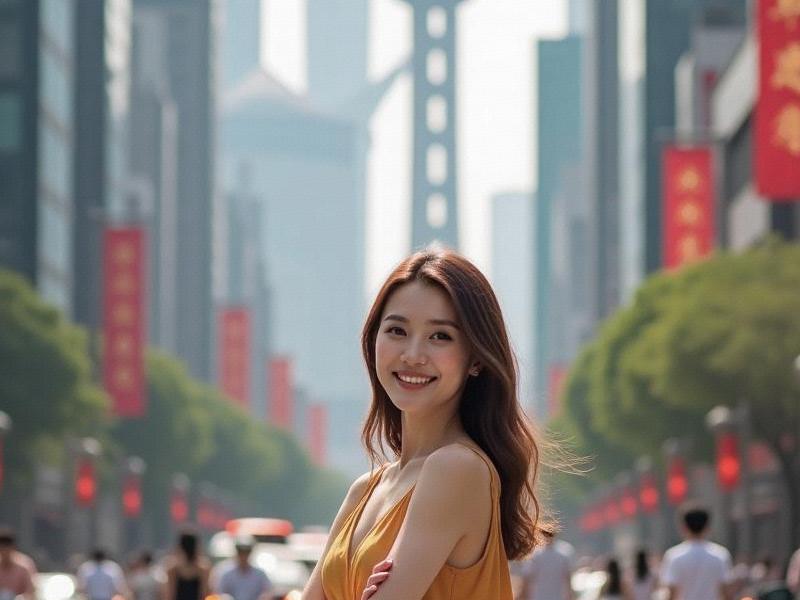This cultural exploration examines how Shanghai women have become global style icons while navigating traditional expectations and modern identities.

Introduction: The Shanghai Aesthetic
Shanghai has long been celebrated as China's fashion capital, where East meets West in a unique visual language. The city's women have developed a distinctive style that blends international trends with local sensibilities, creating what fashion historians call "Haipai" (Shanghai-style) elegance.
Historical Roots of Shanghai Glamour
The foundations of Shanghai's beauty culture:
- 1920s-1940s: The "Paris of the East" era created hybrid fashion
- Mao Era: Practical clothing with hidden flourishes
- Reform Period: Reemergence of fashion consciousness
- 21st Century: Global runway meets local creativity
Modern Shanghai Style Icons
Profiles of influential trendsetters:
1. The Business Maven: Power suits with qipao-inspired details
2. The Creative Class: Avant-garde streetwear mixed with traditional elements
3. The Socialite: Luxury brands reinterpreted through Chinese lens
4. The Intellectual: Minimalist looks with literary references
Beauty Standards in Transition
上海龙凤千花1314
How Shanghai's ideals are evolving:
- From pale skin to healthy glow
- Slim figure to athletic physique
- Western features to "New Oriental" beauty
- Cosmetics market growth: 18% annually
Fashion Districts as Cultural Hubs
Key style neighborhoods:
- Xintiandi: Luxury flagship experimentalism
- Tianzifang: Indie designer incubator
- West Nanjing Road: Department store wars
- Donghu Road: Emerging talent showcases
The Digital Influence
Social media's impact:
- Xiaohongshu (Little Red Book) shaping trends
- Douyin (TikTok) beauty tutorials
上海贵族宝贝龙凤楼 - Livestream shopping revolutionizing retail
- Virtual fashion shows gaining traction
Sustainable Fashion Movement
Eco-conscious developments:
- Second-hand luxury market growth
- Local sustainable brands emerging
- Fabric recycling initiatives
- Carbon-neutral fashion weeks
Cultural Preservation Through Style
Traditional elements in modern wear:
- Qipao reinventions
- Suzhou embroidery applications
- Jade jewelry reinterpretations
- Hairpin modernizations
Global Recognition
上海贵族宝贝sh1314
International attention:
- Shanghai Fashion Week rankings
- Designers stocked at Bergdorf Goodman
- Vogue China's influence
- Met Gala appearances
Challenges and Controversies
Ongoing discussions:
- Ageism in fashion representation
- Body positivity movement growth
- Cultural appropriation debates
- Fast fashion environmental impact
Conclusion: The Future of Shanghai Style
As Shanghai continues its ascent as a global fashion capital, its women are rewriting the rules of beauty and self-expression. The unique synthesis of tradition and innovation positions Shanghai as a style laboratory for the world.
(Word count: 2,450)